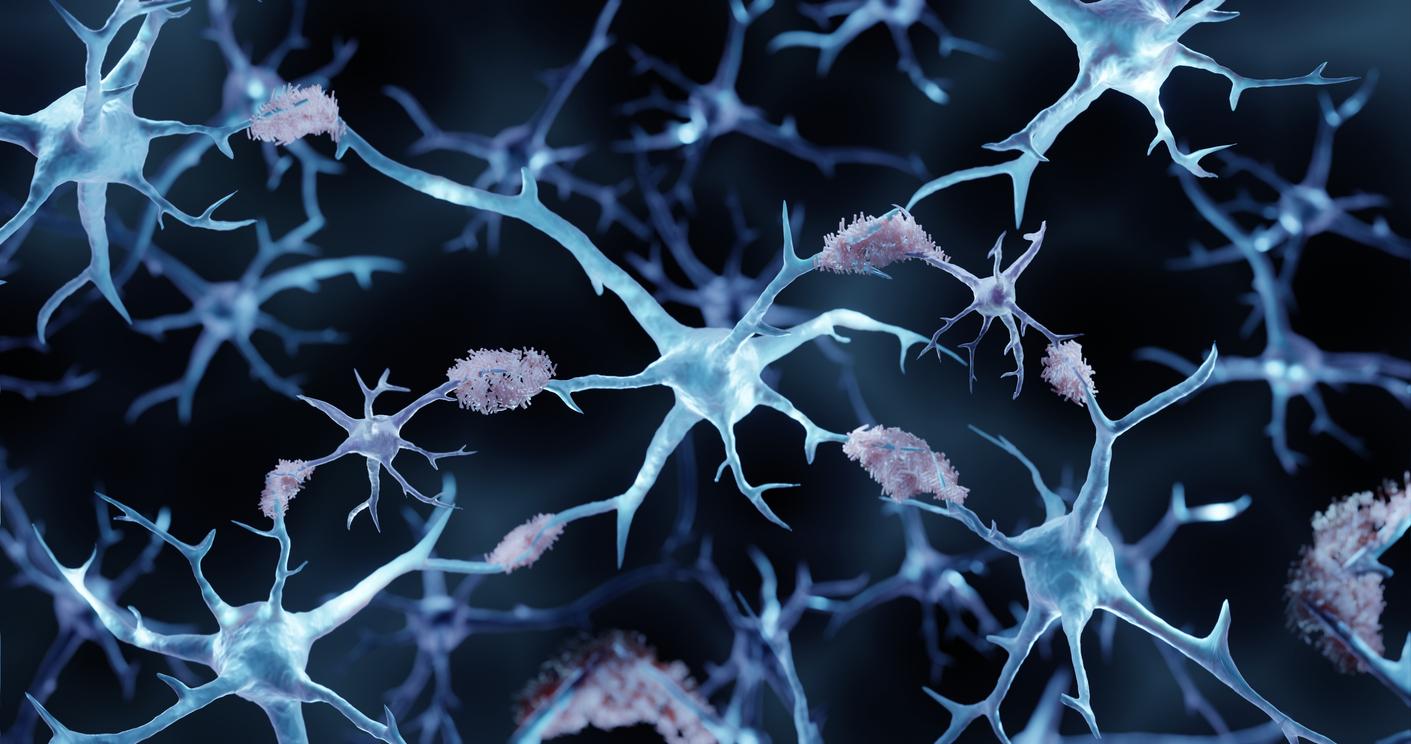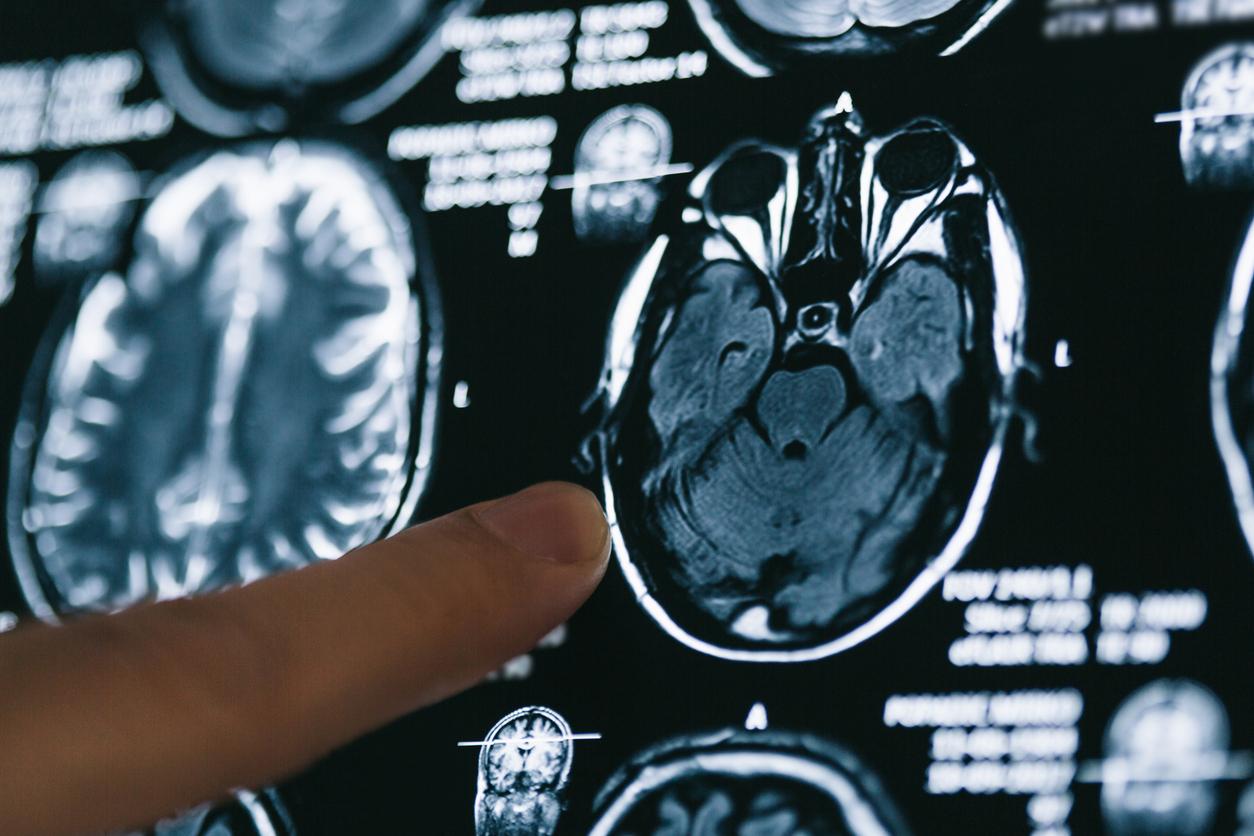Alzheimer’s disease can be favored by several factors such as diabetes, head trauma, too low a BMI or even stress.
-1611187232.jpg)
Understanding the mechanisms of Alzheimer’s disease is a complex undertaking. An international team of researchers from the universities of Fudan (China), Cambridge (United Kingdom), Ioannina (Greece), Toulouse and Montpellier have identified the various risk factors that can promote the onset of Alzheimer’s disease. The results of their study were published in the Journal of Neurology, Neurosurgery & Psychiatry.
For this study, the researchers carried out a meta-analysis of 396 studies (243 prospective observations and 153 randomized trials) concerning the prevention of Alzheimer’s disease. The data, from several databases, dates back to March 1, 2019. By compiling them, they were able to identify ten warning signs of Alzheimer’s disease.
- Diabetes is a risk factor for Alzheimer’s disease. Indeed, in diabetics who are not treated, because of insulin deregulation, the cells, especially brain cells, communicate less well. Thus, over the long term, Alzheimer’s disease tends to develop much faster.
- Hyperhomocysteinemia corresponds to a high level of homocysteine in the blood. When this amino acid is present in excess, it would be responsible for the appearance of neurodegenerative disorders such as those present in Alzheimer’s disease. According to some studies, however, it would be possible to reduce hyperhomocysteinemia with vitamin B.
- Mismanagement of BMI is also to be taken into account to prevent Alzheimer’s disease. In a study published in 2015researchers indicated that being underweight in your fifties was a risk factor, with an additional 34% risk of suffering from Alzheimer’s disease with a BMI of less than 20.
- Likewise, the decline in the level of education is something to take into account. The more educated you are, the more the brain will tend to become denser, due to the multiple neural connections it will have created to convey knowledge. Knowing that Alzheimer’s disease is neurodegenerative, these connections disappear; the more they are destroyed, the more the risk of dementia increases. Knowing that the brain loses a third of its weight with Alzheimer’s disease, having a heavy brain can limit the damage.
- High blood pressure from the age of forty is to be carefully monitored to guard against Alzheimer’s disease. Indeed, it is among people aged between 35 and 64 that the risk of developing Alzheimer’s disease is highest. If this is possible, it is because high blood pressure affecting the small vessels of the brain. By hitting the capillaries, the irrigation capacities are reduced, which can lead to a risk.
- orthostatic hypotension is considered a precursor to dementia. Indeed, orthostatic hypotension corresponds to a sudden drop in blood pressure when going from sitting (or lying down) to standing. During these episodes, the brain is no longer sufficiently irrigated with blood, which forces the heart to compensate. However, according to the researchers, it is these repeated episodes of lack of oxygenation of the brain which would be at the origin of the onset of dementia.
- Head trauma and all other shocks are probably the best known risk factor. It is also to limit the risk of dementia that the world of sport is gradually taking measures to stop the game of ball to the head for example, and that it supervises much better the brutal contacts. Repeated head impacts over a lifetime are critical to brain health in old age.
- Our brain needs to stay active because decreased cognitive activity promotes the onset of dementia. You have to constantly stimulate your brain to strengthen neural connections. This reinforcement can be done through activities that require reflection just as with physical activities. The main thing is to keep your brain in a state of constant activity, because the older you get, the more difficult it becomes to maintain these connections, which is the first step towards Alzheimer’s disease.
- The stress is a serious risk factor for Alzheimer’s disease. Along with anxiety, many studies link stress and dementia. Stress has particular repercussions on memory and concentration abilities, two notions that must be successfully preserved in order not to be quickly affected by Alzheimer’s disease as we age.
- At last, the Depression is linked to Alzheimer’s disease because people affected by one are usually affected by the other as well. In a 2014 study, American researchers showed that depression could lead to up to 50% of rapid cognitive decline in the elderly.

.















